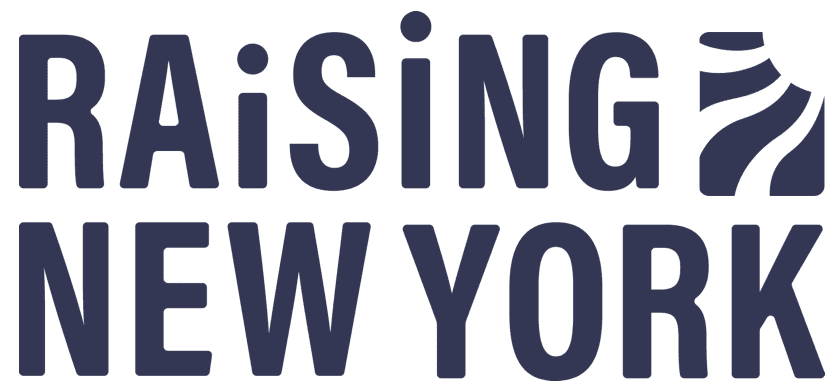Raising New York is a cross-sector, statewide coalition of parent, early childhood, education, civil rights, business, and health organizations, that is led by The Education Trust—New York and dedicated to advocating for policies and system changes that will benefit families of young children, with a focus on improving outcomes for low-income households, children of color, and those in other underserved groups.
The coalition prioritizes recommendations that expand access to high-quality, affordable child care to all families, including the most vulnerable, in part by strengthening the child care sector; reducing child poverty through equitable systems, policies, and programs; and increasing access to high-quality health and developmental care for all young children and mothers.
The Raising NY coalition highlights the following 2024 policy priorities and collectively request policymakers to address them in their one-house bills while responding to the Executive Budget proposal.
Invest in the child care sector. While the Executive Budget invests $1.8B to sustain expanded eligibility to child care assistance and $180M in leftover federal pandemic funding for one-time workforce retention bonuses, there is not an effort to support the workforce in a sustainable way. Among other initiatives, New York should:
- Commit to long-term, sustainable investments in the child care sector that will provide competitive wages and benefits and increase equitable access to high-quality care for families, especially those in under-resourced communities;
- Expand access to child care assistance for all young children, regardless of immigration status, via state general funds;
- Adopt decoupling legislation (vetoed last year) that would separate a parents’ work hours from their eligibility for child care assistance, a policy change that would greatly support those working “nontraditional” hours or in the gig economy;
- Address the shortage of infant and toddler slots, which is the most expensive and staff-intensive, and therefore, difficult to meet the demand; and
- Support a move toward utilization of a cost estimation model, which would compensate providers/educators based on the true cost of providing child care. Ed Trust—NY, together with Prenatal to Five Fiscal Strategies, has developed such a cost model that can be used as a conversation starter. (Resources: ESCCC, PDI, Network for Youth Success)
Invest in programs/infrastructure that accelerate poverty reduction. When the federal government expanded the Child Tax Credit during the pandemic (2021), the child poverty rate fell to a historic low of 5.2%. When that expansion ended, the rate dramatically increased to 12.4%. Child tax credits work. New York should:
- Combine and expand the existing tax credits—specifically the Empire State Child Credit and the Earned Income Tax Credit (EITC)—into a Working Families Tax Credit so that they truly have an impact on family well-being. (Resource: NY Can End Poverty)
Ensure that all children have access to Early Intervention (EI). Families, especially in rural and under-resourced areas, have a difficult time obtaining EI services during the critical early years of brain development. Without these essential services, children often struggle to learn all the skills needed for success in school and beyond. The Executive Budget provides a 5% increase in reimbursement rates for all EI services delivered in person, as well as a 4% modifier for rural and underserved areas. This is a solid starting point. New York should further:
-
- Increase the reimbursement rate to 11%;
- Reform the methodology for EI reimbursement rates to accurately reflect the true cost of care for evaluations, services, and service coordination; and
- Create a student loan forgiveness program to attract new providers and support therapists who provide services in high-need areas. (Resource: Kids Can’t Wait)
Ensure that all children have access to home visiting. While we aim for the North Star of universally offered home visiting, we must expand existing programs so that families who desire ongoing services have access to those services. New York should:
- Increase appropriated funding for both ParentChild+ and the Nurse-Family Partnership program so that those programs can serve more families. (Resource: Home is Where the Start Is)
Ensure that all children have access to infant and maternal health care. The Executive Budget institutes multi-year continuous Medicaid and Child Health Plus (CHP) eligibility for children ages 0-6. New York should also:
- Continue to support access to comprehensive, family-centered, primary prevention services, such as Help Me Grow. (Resources: Help Me Grow, Children’s VBP Workgroup Letter)
Organizations that have signed on in support of these priorities:
Adirondack Birth to Three Alliance
Advocates for Children of New York
All Our Kin
Brightside Up
Buffalo Prenatal Perinatal Network
Citizens’ Committee for Children
Committee for Hispanic Children and Families
Day Care Council of New York
Docs for Tots
Early Care and Learning Council
ECE on the Move
ERASE Racism
Federation of Protestant Welfare Agencies
Help Me Grow NY
Hunger Solutions New York
LIFT-New York
Liftoff WNY
New York Early Childhood Professional Development Institute
New York Immigration Coalition
New York State Association for the Education of Young Children
New York State Community Action Agencies
New York State Network for Youth Success
Nurse-Family Partnership
ParentChild+
Parents Helping Parents Coalition of Monroe County
Schuyler Center for Analysis and Advocacy
The Business Council of New York State, Inc.
The Children’s Agenda
United Way of Buffalo and Erie County
United Way of the Greater Capital Region
United Way of New York City
Westchester Children’s Association
Western New York Child Care Action Team
WIC Association of New York State

